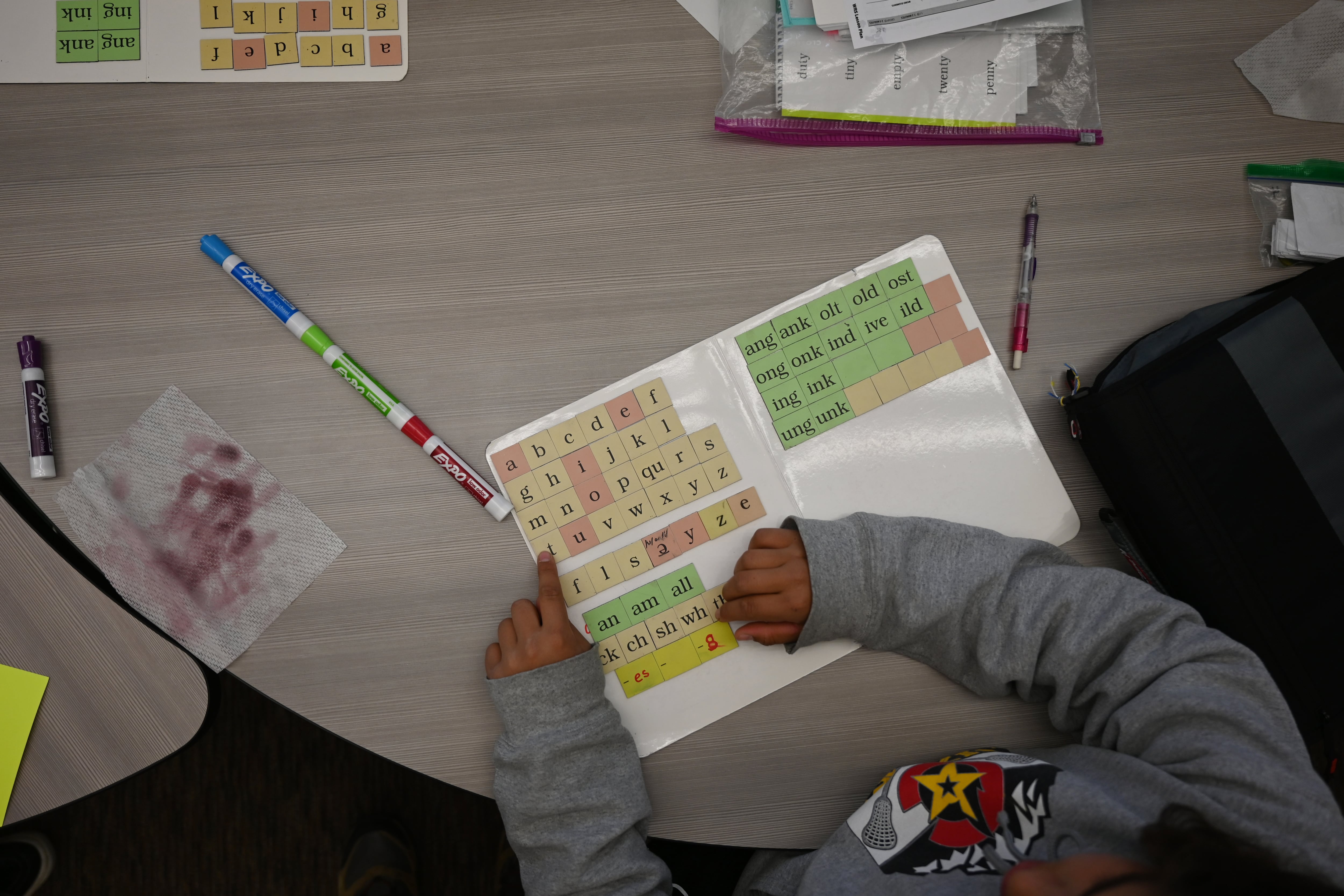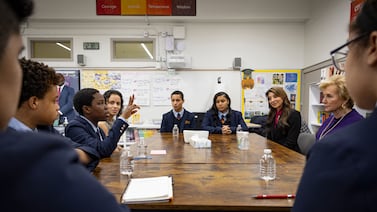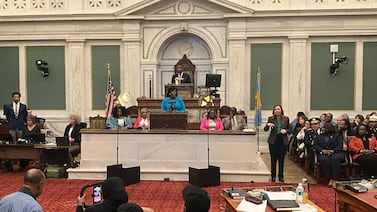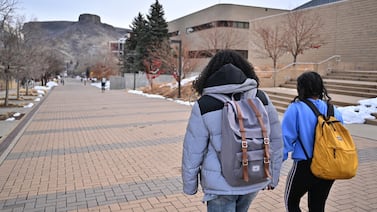Tammy Johnson oversees special education services in five rural school districts in southwest Colorado as the executive director of the Uncompahgre Board of Cooperative Educational Services.
And she also puts in time as a preschool special education teacher — doing assessments, writing student education plans, supervising classroom aides — because there’s no one else to do the job.
Administrators in the districts she serves “know that I’m not available in my office to put out fires now that I have to leave my office to work in Norwood with preschool kids,” she said.
A long overdue boost to Colorado special education funding is buying Johnson some relief soon. By pooling their share of new state funding, the UnBOCES and the five school districts plan to hire an experienced preschool special education teacher at $56,000 a year.
“And oh my gosh, we might be able to pay our folks a little salary increase, enough for them to stay,” Johnson said.
The additional funding comes from the 2023-24 state budget and a related special education funding bill and enables Colorado to meet funding commitments it made in 2006 but never honored.
The formula developed back then proposed that school districts get $1,250 for every student with an individualized education plan and another $6,000 for students whose needs cost more to meet, such as students with autism or specific learning disabilities, students who are deaf or blind, those with traumatic brain injuries or who have significant emotional disabilities.
But instead of meeting that obligation, Colorado lawmakers essentially funded special education out of budgetary leftovers. As recently as 2018, Colorado was paying school districts less than a third of what lawmakers had promised for special education students.
State Sen. Rachel Zenzinger has pushed to steadily increase special education funding each of the last five years. In 2019, she argued that increasing special education funding was even more important than paying for full-day kindergarten. (Kindergarten, a top priority for Gov. Jared Polis, won out.)
Last year, Zenzinger and state Sen. Barbara Kirkmeyer, a Weld County Republican, secured the first inflationary increase since 2006 for all special education students, for whom districts were reimbursed $1,750 this budget year, a 40% increase.
This year’s budget pledges $6,000 for each higher-needs student, the amount set in 2006 but never met. All told, special education funding is increasing about 13.4% to $340 million.
Zenzinger, an Arvada Democrat and the chair of the Joint Budget Committee, said securing funding was a matter of political will.
“Once we exposed this problem, it was really hard to not fix it,” she said. “Our children are entitled to this, and in order to be successful, we need to provide them resources.”
Colorado also has a lot more money to work with thanks to a strong economy, one-time federal dollars, and rising local property values that have taken pressure off the state education budget.
The special education funding bill passed the House and Senate with broad bipartisan support and awaits Polis’ signature. It’s sponsored by Zenzinger, Kirkmeyer, state Rep. Cathy Kipp, a Fort Collins Democrat, and state Rep. Lisa Frizell, a Castle Rock Republican.
The extra funding still leaves school districts on the hook for about two-thirds of more than $1 billion in total costs to educate students with disabilities. The federal government promised back in the 1970s to pick up 40% of the cost but only reimburses school districts about 14% of their real costs, with the state picking up about 20%.
Lucinda Hundley, who heads the Consortium of Directors of Special Education, said school districts are grateful for the additional money, but they also need lawmakers to understand it’s a fraction of the cost. School districts are legally required to provide special education services, so unreimbursed costs come out of the general education budget.
A study group last year decided against making major changes to how Colorado funds special education, but Hundley said she hopes the state takes another look at how much it invests in special education and considers what a fair share would be between the state and districts.
Rob Gould, a Denver special education teacher and president of the Denver Classroom Teachers Association, said low funding has exacerbated a shortage of special education teachers and special service providers such as speech language pathologists, occupational therapists, and school psychologists.
“We do not have enough teachers or support staff to serve our students the way they deserve. At every turn, special education educators rise to the occasion, but the state’s lack of investment has exacerbated the educator shortage,” he told lawmakers this month.
Gould described one teacher who quit after her caseload rose to 40 students because she was the only special education teacher in her building.
“She left the profession entirely so she could spend time with her kids on the weekend,” he said.
Staffing shortages and high workloads sometimes mean students don’t get the services they’re owed. In just one recent example, the Colorado Department of Education found that Denver violated federal requirements by failing to provide speech therapy to more than 1,000 young students.
Colorado’s educator shortage survey found that 17% of open special service provider positions went unfilled last school year, compared to just 8% of classroom teacher openings. Year after year, special education teachers are among the hardest to hire.
Johnson, the BOCES director, cobbles together services uses independent contractors and virtual appointments. If money were no object and she could offer competitive salaries to go with sweeping views of the San Juan Mountains, services would look a little different.
“I would have a psychologist in every building,” she said. “I would have a social worker in every building. I would have a speech pathologist in person. I would have release time for my teams to plan. If we could meet some of our students’ needs proactively rather than reactively, it would make a difference.”
In voting to move the bill out of the House Education Committee, state Rep. Mary Young, a Greeley Democrat, said she started working as a special education teacher before there was even a federal law requiring that schools serve students with disabilities. In all those decades, special education had never been adequately funded, she said.
“The people who do special ed do it because their heart is in it,” Johnson said. “Growing up, my brother couldn’t come to school with us because they didn’t have a program for him. That’s why I’m doing this.
“But I’m in my 27th year and funding hasn’t come close to catching up, and it’s a travesty that we have to do it on the backs of general education students who are also struggling.”
Bureau Chief Erica Meltzer covers education policy and politics and oversees Chalkbeat Colorado’s education coverage. Contact Erica at emeltzer@chalkbeat.org.







